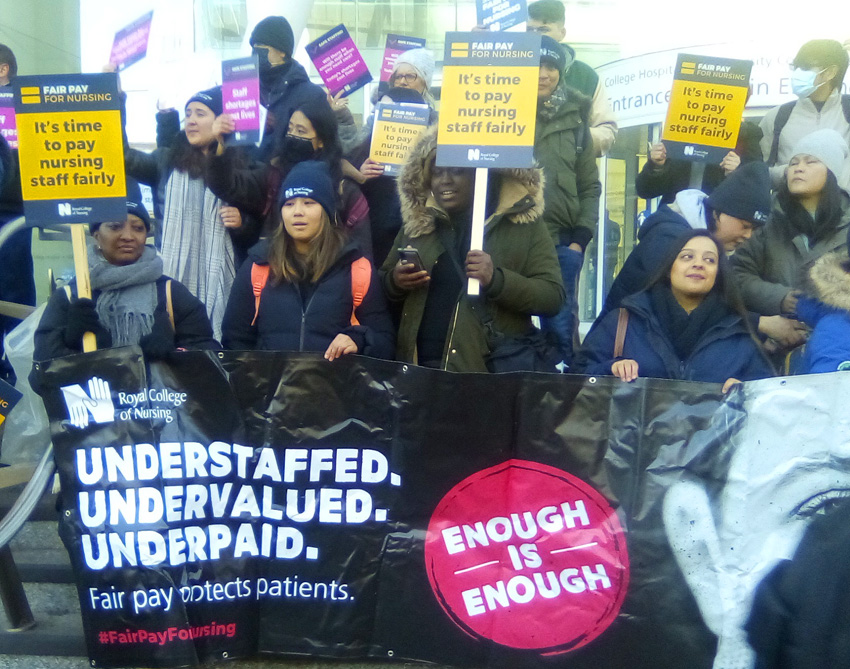‘THE government is setting itself on a collision course with nursing staff,’ the RCN (Royal College of Nursing) has warned.
The RCN, which represents over 500,000 nursing staff, responded on Monday night to the setting of ‘minimum service levels’ of nurse numbers required to work on strike days under the new Tory anti-union law.
It said government plans to introduce minimum service levels in hospitals during strikes will silence nursing staff and their concerns for patient safety.
The Strike (Minimum Service Levels) Act legislates for minimum staffing on strike days, but the government remains opposed to introducing legislation that would ensure year-round safe staffing.
The NHS is now so understaffed that every day across the service one nurse may be responsible for 10, 12, 15, or more patients at a time – far too many for safe care.
The new law means that some nursing staff will be forced to work during strikes or face the sack.
With more than 40,000 nursing vacancies in the NHS in England alone, the law change could mean workplaces are more safely staffed on strike days than on non-strike days.
The RCN argues that overseas nursing staff, who represent almost one-fifth of the nursing workforce, will be disproportionately impacted by the new law.
Government plans put them at risk of losing their visa, and UK residency if they take strike action.
The UK’s largest nursing union has also raised a specific concern that the new law is discriminatory.
Because nursing is a 90% female profession, the legislation being applied to nursing marks a gendered attack on the freedom of women to speak out.
In January, an assurance was given on the floor by the Leader of the House of Commons, Penny Mordaunt MP, that the Strikes (Minimum Service Levels) Bill was not aimed at preventing nursing staff from going on strike and claimed ‘it was wrong to suggest so’.
She reflected on how responsible the RCN had been in staging safe strike action saying: ‘We have great confidence in the minimum service levels that they have put in place.’
RCN Chief Nurse Professor Nicola Ranger said: ‘The government is setting itself on a collision course with nursing staff.
‘At its heart, this provocative, draconian new law tries to stop them from speaking up for their patients – and makes strike action more likely. Nursing staff will never be silenced.
‘Wanting safer care for our patients is what motivated nurses to strike. And we prioritised safety during strike action – the government repeatedly recognised that.
‘Ministers do not need to lurch for conscription – it is a sign of great failure. Now, in extreme circumstances, nurses even risk losing their jobs.
‘Ministers blatantly misled nursing staff about how this legislation would impact them.
‘We will campaign against this law – and all other anti-strike measures announced by the government – and lobby for the act to be repealed in its entirety.’
